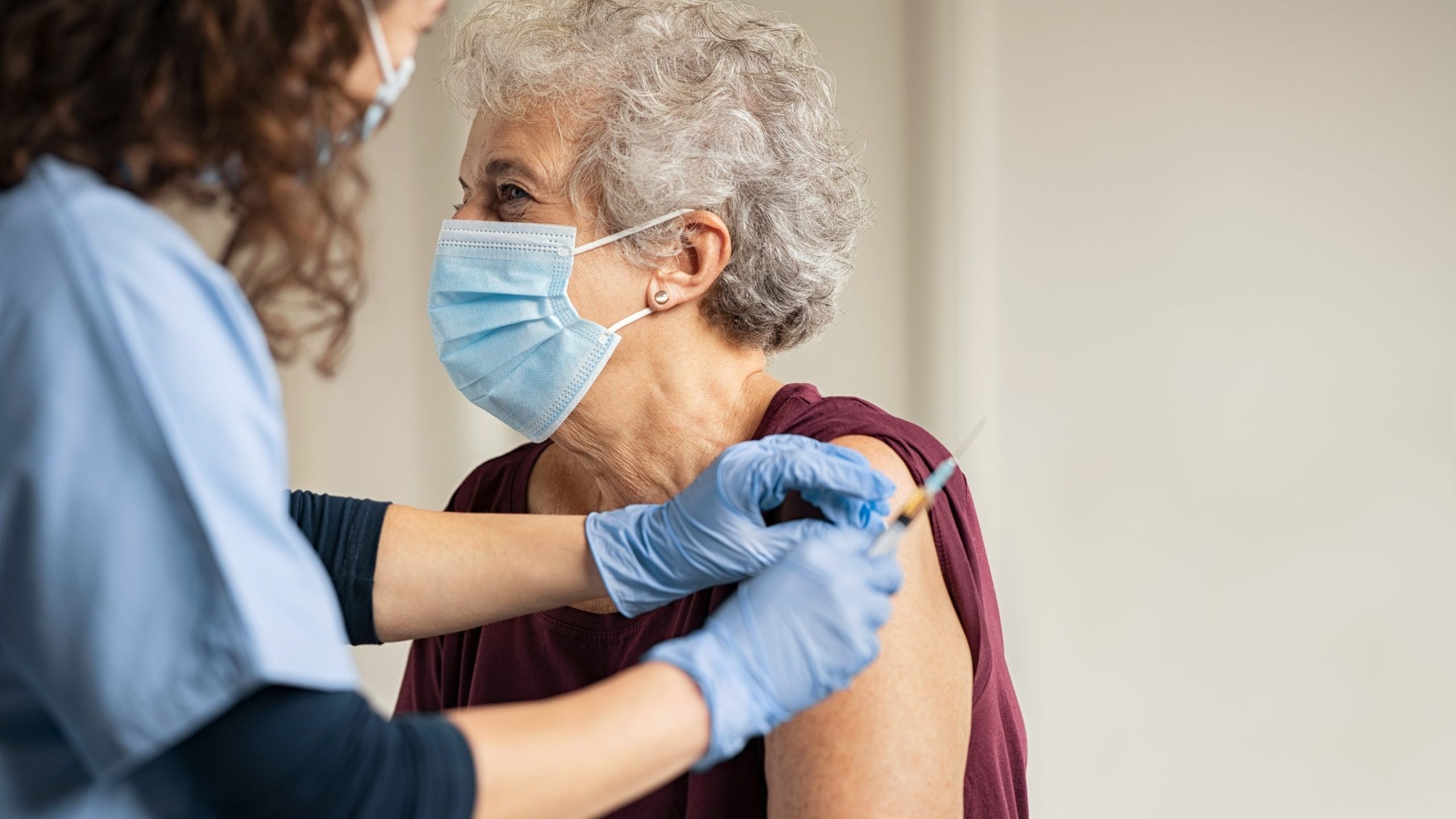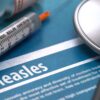It may not be long before the first doses of a COVID-19 vaccine arrive in Alabama, but that doesn’t mean the fight is over, public health experts said this week.
Alabama State Health Officer Dr. Scott Harris, speaking to APR on Wednesday, urged the public to continue wearing masks and practicing social distancing for many more months, as the department works to make the vaccines more widely available.
New cases, hospitalizations and deaths continue to rise in Alabama and across much of the country. Alabama on Wednesday set a new record high for the state’s seven-day average of new daily coronavirus cases.
The department’s plan calls for those most at risk, including health care workers, to get vaccinated first. Just which health care workers will be first in line — not all workers are exposed to COVID-19 to the same degree — is still being discussed, Harris said.
A team from the Centers for Disease Control and Prevention is in Montgomery this week discussing those plans with the ADPH staff, Harris said.
ADPH’s vaccine plan rolls out vaccines in three phases, with the first phase having a phase A (health care workers with potential for direct or indirect exposure to patient or infectious material) and phase B (other essential workers, people at higher risk of COVID-19 illnesses and people 65 and older). Phase two includes the remainder of phase one populations, critical populations and the general public and phase three would include all others.
“We have the big picture of priority groups, the phase one A, one B, and then two and three, but how it breaks down within those groups is something that we’re still working on,” Harris said. “We have pretty good detail so far but we’re still trying to think through all the implications of that.”
“I have no doubt that not everyone will be happy with the plan, and unfortunately that’s the situation you have when you have a scarce resource,” Harris said.
There was some concern that Pfizer and BioNTech’s vaccine requires ultra-cold storage using freezers not typically found in smaller medical settings, which could complicate disbursement of the drug throughout the state, but Harris said there’s been some good news on that front.
Harris said the CDC will ship Pfizer’s vaccine using dry ice packs, which the CDC will continue to supply and which are to be refreshed every five days if the more costly freezers aren’t available in some areas.
“So we recharge it on arrival, we recharge it on day five, and then on day 10,” Harris said. “And then on day 15, it can still go in the refrigerator, not in the freezer, for another five days.”
“So we think that gives us a lot more flexibility because we can spread it around to places that don’t necessarily have ultra-cold storage available,” Harris said.
Numerous Alabama hospitals do have ultra-cold storage capabilities, however, Harris said. The U.S. Department of Health and Human Services asked ADPH to identify strategic sites across the state that do have ultra-cold storage capabilities, where the vaccines will be shipped to first, and six such sites have been selected, he said.
As ADPH works on those plans, it’s becoming clear that the department may have more than one vaccine to handle at once, Harris said. He said the department learned today that Moderna’s application for emergency use approval from the U.S. Food and Drug Administration may be submitted sooner than had been thought.
“So it may be that we have both the Pfizer and the Moderna product pretty much at the same time, and as you know, the cold chain storage requirements aren’t as stringent for the Moderna product, so that will be helpful if that comes to pass,” Harris said.
Pfizer on Wednesday announced the company’s vaccine is 95 percent effective at preventing infection, up from an earlier estimate of more than 90 percent effective and just more than Moderna’s estimation that the company’s vaccine is 94.5 percent effective.
Both companies say no significant safety concerns have been reported for either vaccine.
Both vaccines will require two shots. The Pfizer vaccine requires a second shot 21 days out from the first, and it will take 28 days after the first dose of the Moderna vaccine before the second can be administered, Harris said.
ADPH’s plans call for reminders to be sent out to the public to ensure that the second dose isn’t missed.
Despite the good news about vaccines, Harris cautioned the public to remain vigilant and to continue wearing masks and social distancing.
“Just because the first shots are rolling out doesn’t mean it’s time to stop doing everything we’ve been trying to get people to do for months,” Harris said. “It’s not going to be widely available for a little while,” Harris said.
Dr. Jeanne Marrazzo, UAB’s director of infectious diseases, told reporters during a briefing Wednesday that she would like the public to continue to behaving as if there are no vaccines.
“Because in reality, we don’t have a vaccine yet. We won’t have a vaccine for everybody probably until well into 2021,” Marrazzo said, adding that vaccine supply will be short at the start and will need to be carefully apportioned to first responders.
“There’s a lot of discussion about how that should be done ethically, and with the greatest impact for protecting people who are providing care for what we expect to be a continued surge of hospitalizations in particular, over the coming weeks,” Marrazzo said.




















































